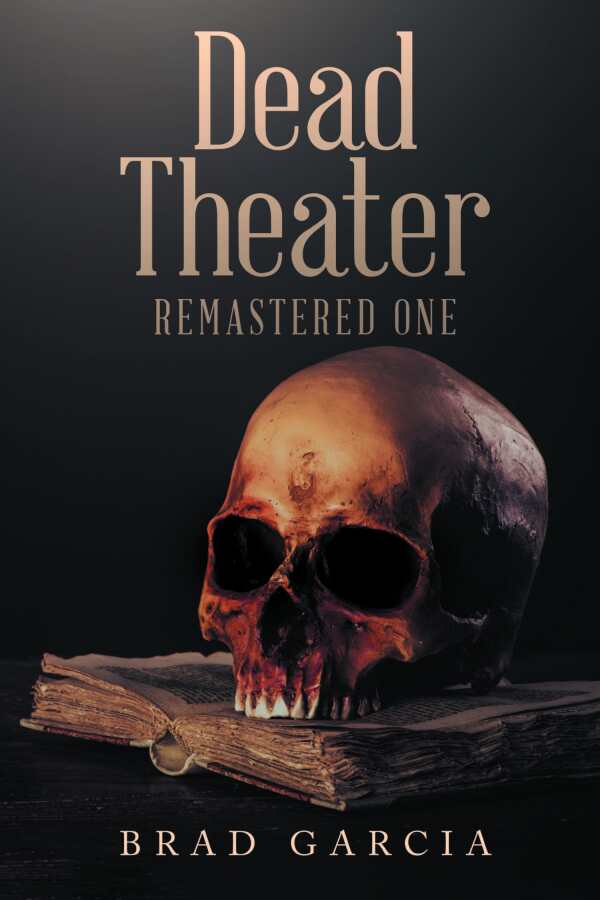Dead Theater
Remastered One
A man stumbles into an unusual afterlife situation in Dead Theater, a novel that evokes movie theater classics.
In Brad Garcia’s horror novel Dead Theater, a young man watches a series of gory horror movies in a theater that’s reserved for the dead.
After working up the courage to ask out his crush, Robert has been looking forward to their date. But as he arrives at the movie theater where they’re to meet, a sudden storm hits. When a man dressed as a skeleton welcomes him, Robert believes that he’s at the wrong place. However, when he tries to leave, he’s unable to. Finally, he’s told that he died in a car crash on his way to the date.
It’s not all bad news, though: the theater has every movie ever made and unlimited snacks. Robert settles in and watches several trailers before the main film rolls. During breaks, he connects with Skins, the skeleton man. The two form a friendship in the afterlife.
In total, Robert sits through six movie trailers and the main movie. Each trailer is rendered internally as a short story, with the six shared sans clear connective threads beyond their general horror tropes; the main movie’s treatment runs a bit longer but is less substantial than the stories.
The stories are sensationalist and light on surprises. Their foci include cannibalistic serial killers and haunted cars. In “Night of the Blood,” a vampire’s victims disappear straight into the sky following gruesome, gory attacks. And the movie evokes sleeper science fiction reels, with over-the-top characters, a quick pace, and awkward dialogue; it aims to focus on the fantastical elements of space, but mundane activities consume it more.
But with its focus on these tales, the book relegates Robert’s own story to its background. Though he’s the ostensible hero, comparatively few pages are specific to him. Such pages preference fun moments, as when Robert bonds with Skins over candy and go-carts, or when the two crack jokes. The question of why he ended up in this particular afterlife situation is underattended to, though—as is the question of whether being stuck in the theater is all that he can expect for eternity. Further, the book’s spelling and grammatical errors are frequent, and its unusual formatting choices are distracting, as with its drawn-out sound effect spellings, which stand in the place of fleshed-out action sequences.
In the lighthearted afterlife novel Dead Theater, a recently deceased man faces the existential hell of watching trashy movies in an abandoned theater for all eternity.
Reviewed by
John M. Murray
Disclosure: This article is not an endorsement, but a review. The publisher of this book provided free copies of the book and paid a small fee to have their book reviewed by a professional reviewer. Foreword Reviews and Clarion Reviews make no guarantee that the publisher will receive a positive review. Foreword Magazine, Inc. is disclosing this in accordance with the Federal Trade Commission’s 16 CFR, Part 255.

